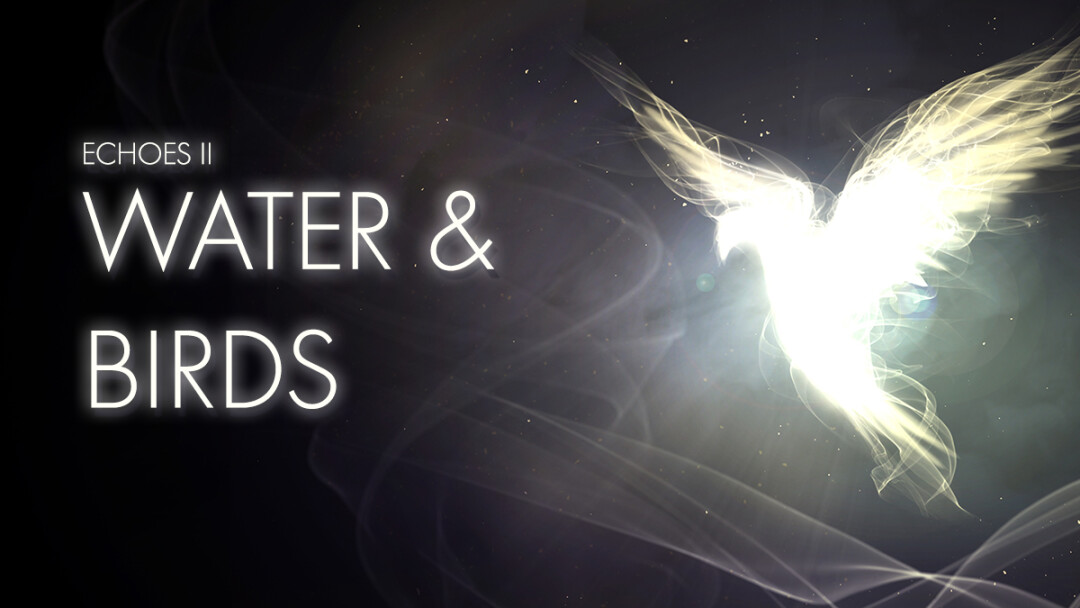
When we think of the opening chapters of Genesis, our minds typically go to Adam and Eve, Cain and Able, and Abraham and Issac. I’d like to add another pair to our list: water and birds.
Just a few weeks ago, we celebrated baptism Sunday. For me, it is consistently one of my favorite times in our church. Baptism is a moment of profound significance in the life of every Christian. It is a definitive moment when someone is visually buried with Christ in his death, and raised to walk in newness of life with his resurrection.
Baptism was no less significant in the early church, and one particular baptism drew a lot of attention: Jesus’s. It’s easy to understand why; the baptism of Jesus is one of the few events that is addressed in all four gospels. Clearly, something REALLY significant is going on here. When John the Baptist is asked about the messiah, he says that Jesus’s baptism is what convinced him, “I myself did not know him, but for this purpose, I came baptizing with water, that he might be revealed to Israel. And John bore witness, “I saw the Spirit descend on him like a dove: and it remained on him.”
What is it about this series of events that “seals the deal” for John? What is it that convinces him that his cousin is also his Lord and his messiah? It happens to be another excellent example of intertextuality or biblical “Echoes.”
Our story begins with the creation of the world, but Genesis is careful to note that before things get into full swing, “Now the earth was formless and empty, darkness covered the surface of the watery depths, and the spirit of God was fluttering over the surface of the waters.”
Day by day passes, and God calls forth from the watery depths new creation: dry land, flora, fauna, the list goes on, and on all of it, he declares goodness. Of course, you need only read the next few chapters to find that things don’t stay that way. Adam and Eve’s sin causes the engine of creation to misfire, and the world spirals downward until we reach Genesis 6. After centuries, God has had enough and announces that he will judge the world. This judgment is to sink all of this corrupted creation back into the waters that it came out of.
Maybe you’ve seen the movie, in the days of Noah, God decides to unmake the world, to sink it back into the depths, to submerge it in the floodwaters of his judgment. That is, except for one family, which boards an ark and waits for judgment to pass by, and for a new world to be born. Days pass, weeks pass, and finally, Noah thinks that the floodwaters might have receded. Soon after, Noah releases a dove that hovers over the surface of the deep until it finally returns to the ark, unable to find any hint of a new world emerging from the waters of God’s judgment. Over the next two weeks, he sends the dove out twice, and the second time it doesn’t come home. It had found somewhere to land, an emerging piece of a new creation that has emerged from the waters of God’s judgment. Of course, the rest of the Bible points out that the post-flood world is just as wicked as the pre-flood world. If the dove were looking for a new place to rest, one that was free from the ravages of sin and the judgment of God, it would have to search for centuries.
That is until the baptism of Jesus. When Jesus emerges from the waters of the Jordan, “The heavens opened for him, and he saw the spirit of God descending like a dove.” As if to say, “This is the true beginning of God’s new world.”
Jesus isn’t the only one who sees this, John sees it too, and when the Spirit descends, like the Spirit that fluttered over the waters, like the dove searching for a new creation after the flood, he knows that the man in front of him is the one who can set the world right, who can restore what sin has ravaged and call all of creation out from under the waters of judgment and in to newness of life.
